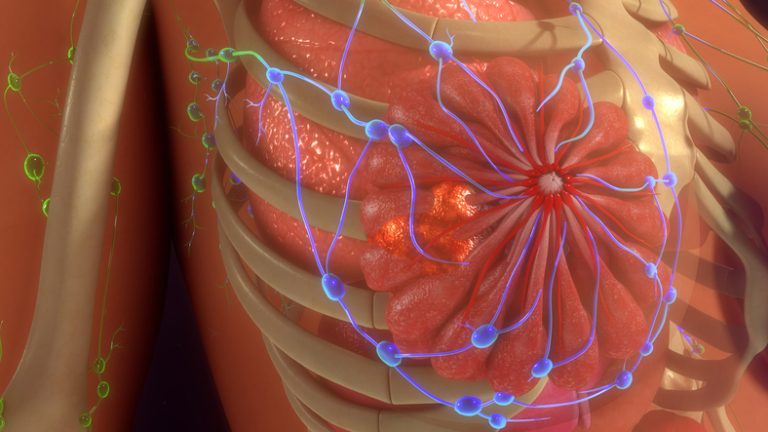
Research by Georgetown University researchers reveals that less than 20% of the cells in an aggressive tumor are responsible for the cancer spreading to other parts of the body and becoming metastatic.
The researchers, based at Georgetown Lombardi Comprehensive Cancer Center, think this is why these ‘enabler’ cells might be missed if bulk tissue analysis is used to predict prognosis and select treatments.
“Our novel finding goes beyond the common understanding of cancer progression as one modeled on Darwinian selection where ‘survival of the fittest’ means the predominant type of cell in a tumor dictates its outcome,” noted Anna Riegel, a professor at Georgetown Lombardi, who led the research.
“This could have major implications for our understanding of how best to diagnosis and treat certain cancers as blocking key cancer-promoting subpopulations of cells might be a way to defeat the cancer.”
Riegel and team investigated the function of a shortened protein, encoded by the oncogene Amplified in Breast Cancer 1 (AIB1), known as AIB1-Delta 4 that is commonly found in metastatic or advanced pre-metastatic breast cancer.
The researchers produced normal and early-stage breast cancer cells expressing AIB1-Delta 4 using CRISPR. In cell culture, the cells expressing the abnormal protein had greater ability to move and invade other parts of the body.
In a mouse model of breast cancer, this protein enhanced tumor growth, and made metastasis and recurrence more likely and in a zebrafish model the presence of AIB1-Delta 4 seemed to make parent cancer cells more likely to invade other tissues.
“We propose that the detection of these enabler cells in early-stage breast cancers could predict which tumors are more aggressive and destined to metastasize,” said Ghada Sharif, a researcher at Georgetown Lombardi and first author of the Cancer Research paper describing these results.
“Therapeutic targeting of vulnerabilities uncovered in the enabler cells, such as the splice variants, could represent a new approach to preventing malignant progression of breast cancer.”
The team found that AIB1-Delta 4 also triggered production of inflammatory proteins and peroxisome proliferator activated receptor activity, thought to be anti-oncogenic, was repressed.
This data could be particularly important for women with triple negative breast cancer. This type of cancer often starts with non-malignant tumors called ductal carcinoma in situ (DCIS), which can quickly become malignant in a small percentage (5-10%) of women affected. The researchers think AIB1-Delta 4 could explain why and they found that women with higher risk DCIS had higher levels of this protein.
“The detection of small populations of cells that express the AIB1-Delta 4 isoform could be predictive of DCIS lesions that are more aggressive and destined to metastasize,” write the authors.
“An AIB1-Delta4 related gene expression signature in patients could also be used to predict poor outcome. Future studies will determine if detection of changes in isoform expression patterns in early-stage non-invasive breast cancer (DCIS) could indicate conversion to invasive cancer.”











